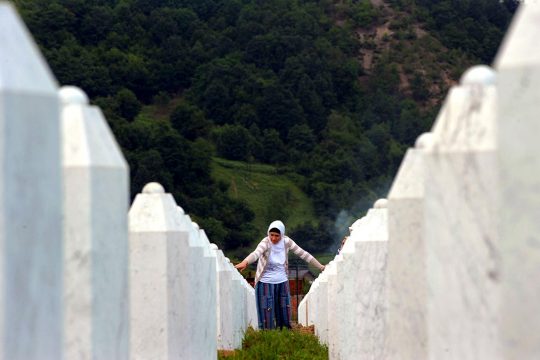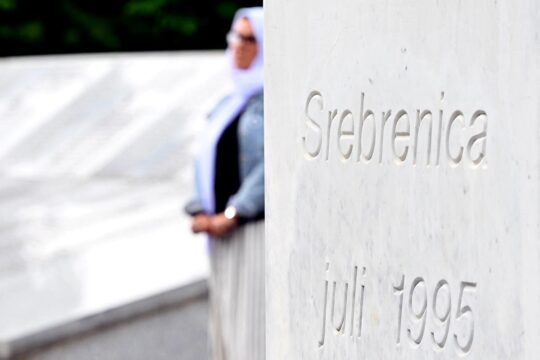Last week’s arrest of wartime Srebrenica Commander Naser Oric in Switzerland has sparked heated reactions from Bosniaks and Serbs along ethnic lines. A hero for the former and a criminal for the latter, Oric is becoming once again a symbol of deep division between the Balkans communities, twenty years after the war.
High emotions are fueled also by the fact that Oric’s arrest comes less than a month ahead of the twentieth anniversary of the fall of Srebrenica in 1995, the event later defined as genocide by international and Bosnia-Herzegovina domestic courts, but disputed in essence by Serbs.
Media reported that the order for Oric’s arrest was issued by the Swiss Federal Office of Justice (FOJ) based on a February 3, 2014 request from the Serbian authorities. Oric is in detention, and judges are to decide on an extradition request, which is expected to come from Belgrade. In addition to Naser Oric, international arrest warrants were also issued for the arrest of wartime police chief in Srebrenica Hakija Meholjic and three other members of the Bosnia-Herzegovina Army.
Serbia's War Crimes Prosecutor's Office holds Oric and the other four Bosniaks responsible for killing nine civilians of Serbian nationality in the villages of Zalazje and Donji Potocari, in the Srebrenica area, on July 12, 1992. The Serbian authorities allege that between 1992 and 1995 Oric and other members of the Bosnian Muslim forces repeatedly attacked Serb villages in the Srebrenica region, to drive out the civilian Serb population with a campaign of intimidation, torture and murder.
The Swiss FOJ confirmed in a press release that Oric had been granted a hearing and is being held in detention pending possible extradition. Law experts in Belgrade speculate that Swiss authorities might decide either to extradite him or to prosecute him in Switzerland under international law and the Geneva Conventions.
In 2008, the International Criminal Court for the former Yugoslavia (ICTY) acquitted Oric of all charges for crimes against Serbs. Initially he was charged with war crimes including murder, cruel treatment, wanton destruction and plunder committed against Serbs while serving as Commander of the Srebrenica Army Division during the period June 1992 to March 1993. His acquittal was hailed in Bosnia as a victory and Naser Oric was welcomed back to Bosnia as a hero. Serbian officials, however, were angered by the verdict and claimed that the ICTY is not contributing to reconciliation between the two communities.
“I was prosecuted in The Hague, where I said everything and where I was released,” Oric said in January 2014.
Law experts point out, however, that while acquitting Oric of all charges, the ICTY Appeals Chamber stated clearly in its verdict that the Bosnian Army did commit crimes against Srebrenica Serbs, a fact that could be considered in any future trials.
Belgrade lawyer Borivoje Borovic believes there is a “realistic possibility” that Oric will be extradited to stand trial in Belgrade because, he says, there is a new charge against him that the ICTY did not deal with.
Naser Oric, 48, was born in Bosnia-Herzegovina, near Srebrenica, but started his career as police officer in Serbia after completing a six month course in 1988. With two additional years of courses and training he joined the special police unit in Belgrade and in 1990 he was deployed to Kosovo. According to media reports, after returning to Belgrade, Oric became a bodyguard to the then President of Serbia Slobodan Milošević and was active in quelling civil unrest during the March 1991 mass protests in Belgrade. In August 1991 Naser Oric was transferred to a police station in Sarajevo. He soon became chief of the police and later of army units in Srebrenica during the 1992-1995 wartime.






